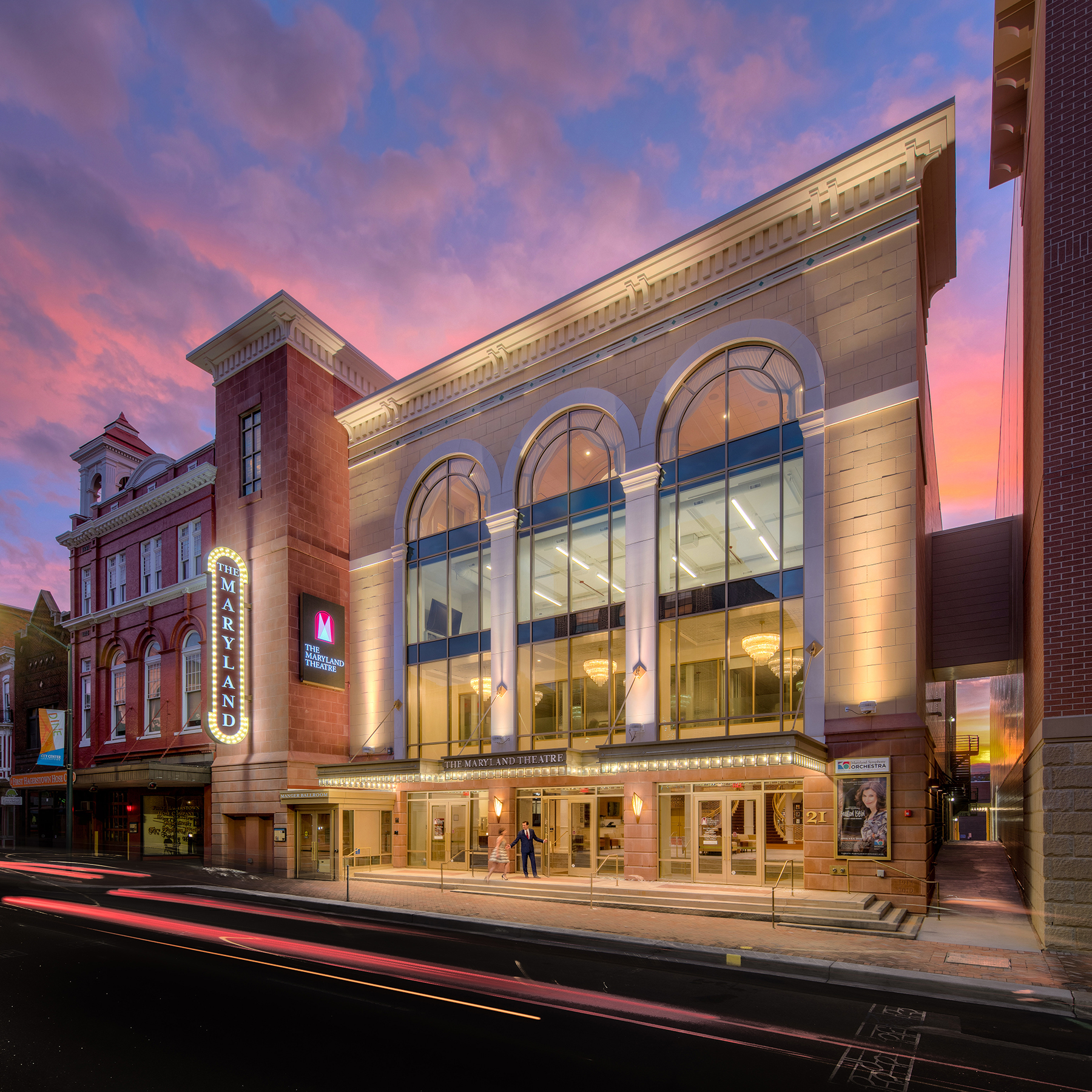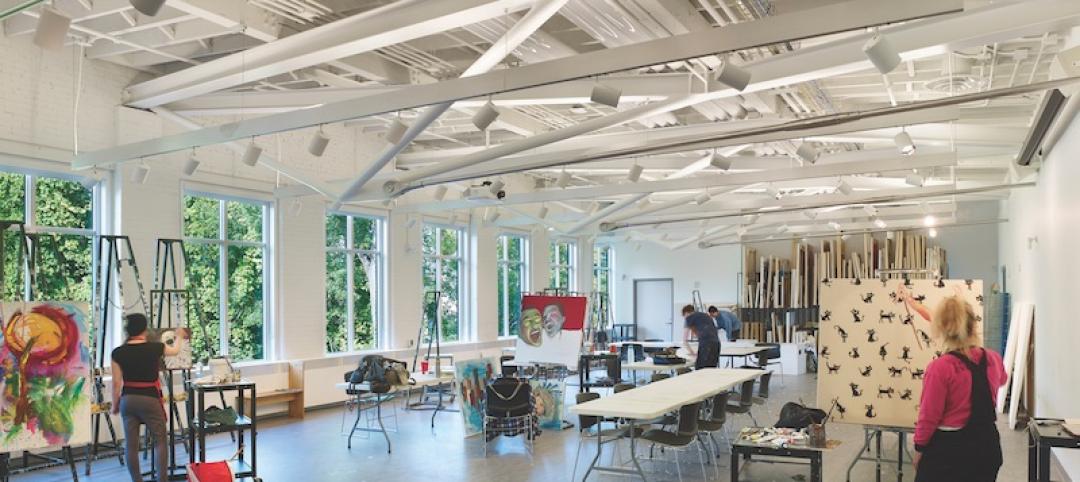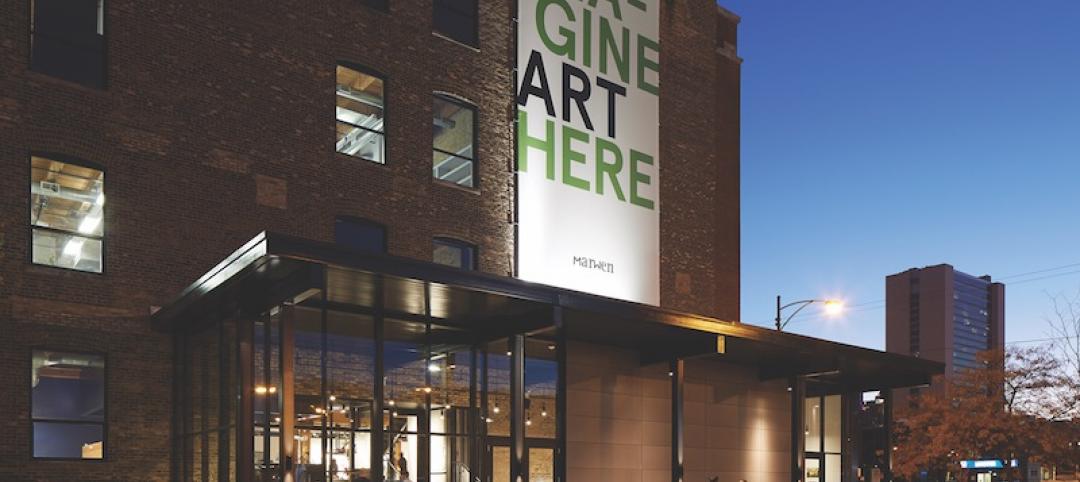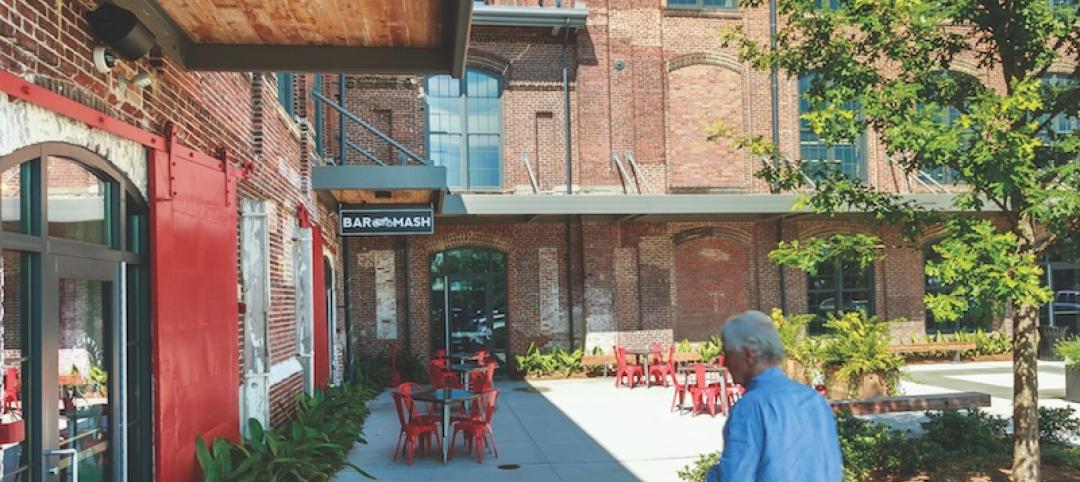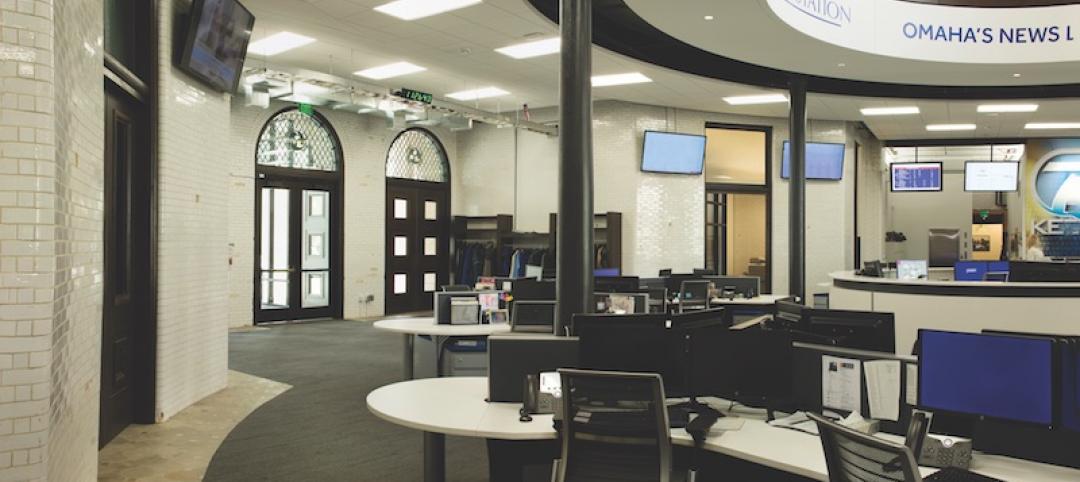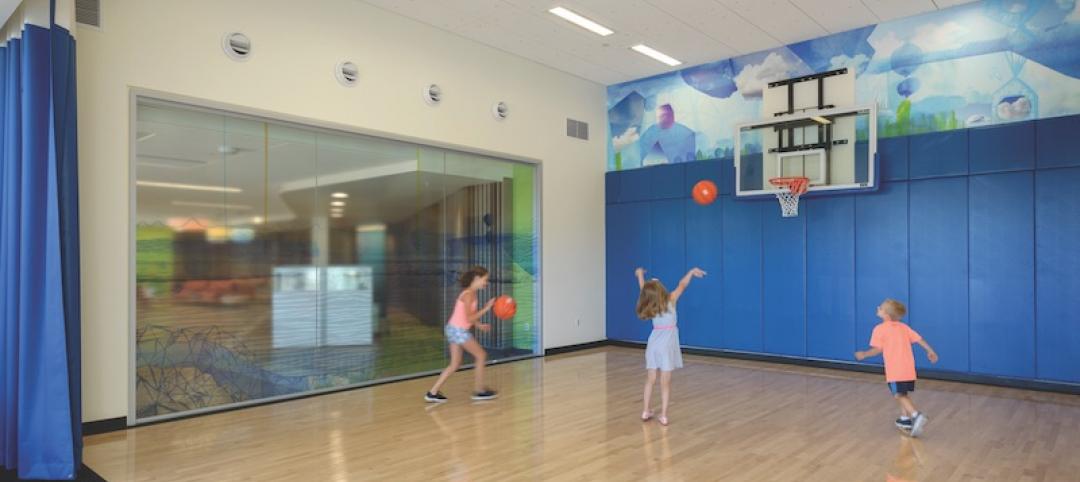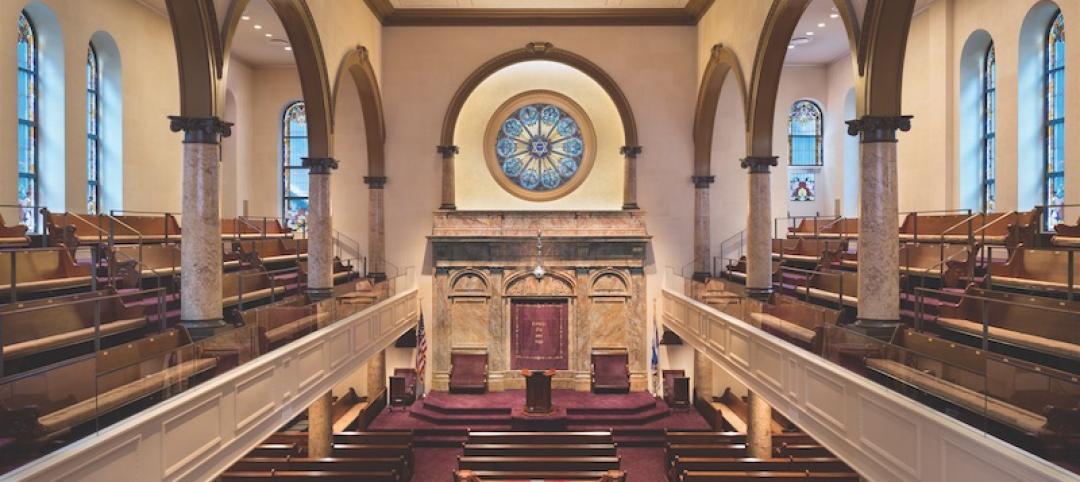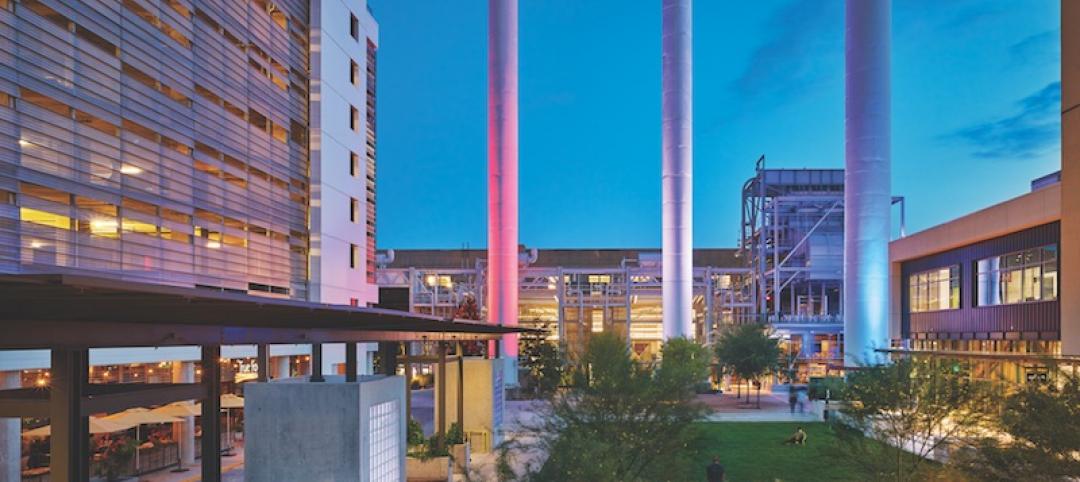In February 1974, a fire destroyed the Maryland Theatre’s original apartment building facade and ground floor theatre entrance, leaving a permanent void along the street fabric in Hagerstown, Md.
A new small lobby was built in 1978 and the interior was slowly renovated from 2010 to 2016, but for 46 years the theatre had zero street presence. A community effort to spur development in Hagerstown City Center looked to change that. In 2018, The Maryland Theatre renovation project began construction. The goal of the project was to expand the theatre’s draw and bring more patrons to the city center.
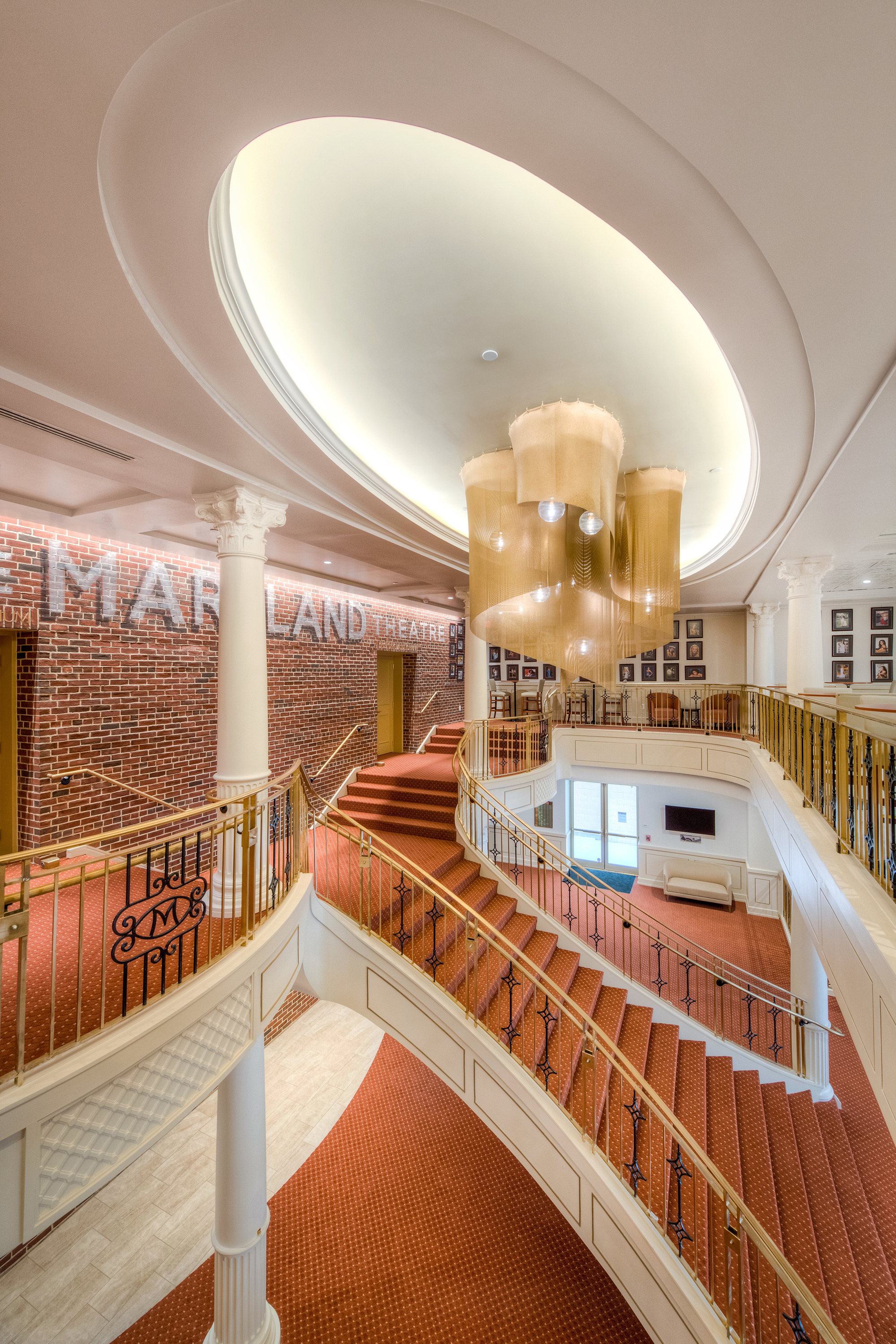
Grimm + Parker Architects designed a new 32,000-sf, five-story expansion that reclaims the theatre’s street presence and gives Hagerstown, Md., the public spaces it always needed. While in the past it was easy for visitors to walk or drive down the main city street and never notice the Maryland Theatre was even there, the new addition fills the urban void with a new eye-catching facade worthy of the theatre’s historic status.
Stained glass from the original building was salvaged and reused in the stair tower while a glass tile frieze, inspired but the theatre across the street, adorns the facade. The canopy design is based on the original canopy design that was destroyed in the 1974 fire.
In addition to creating a new street presence, the design also looked to correct many of the deficiencies with the existing theatre. Raising up the exterior theatre walkway improved functionality. The new walkway at grade created an ADA accessible stage loading door; allowed house right egress to be relocated at grade, making the theatre interior symmetrical; and created new space for a tunnel that gives performers access from front-of-house to back-of-house.
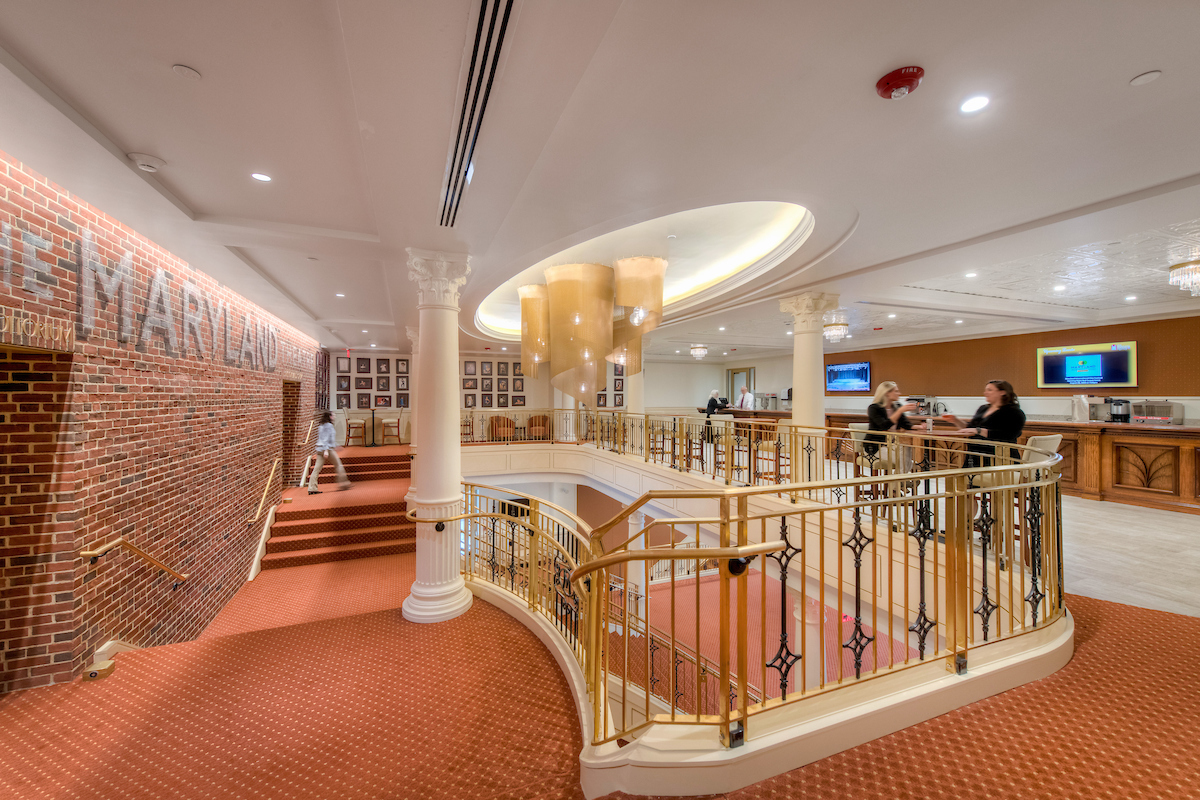
Theatre circulation was also improved. The original theatre had only one public entrance and exit, which created congestion when the up to 1,300 patrons exited after a show. The new addition increased circulation dramatically by providing egress in three more locations, adding additional front-of-house spaces, and improving overall safety.
Interior brick was used on the new addition to signify the Historic Theatre threshold. The brick features a painted sign similar to the one on the prominent exterior rear wall. The new lobby design, meanwhile, references the existing elliptical dome in the rear of the theatre. A new secure basement and bridge connection to the adjacent public Performing Arts High School allows high school students to use the rehearsal studio and stage.
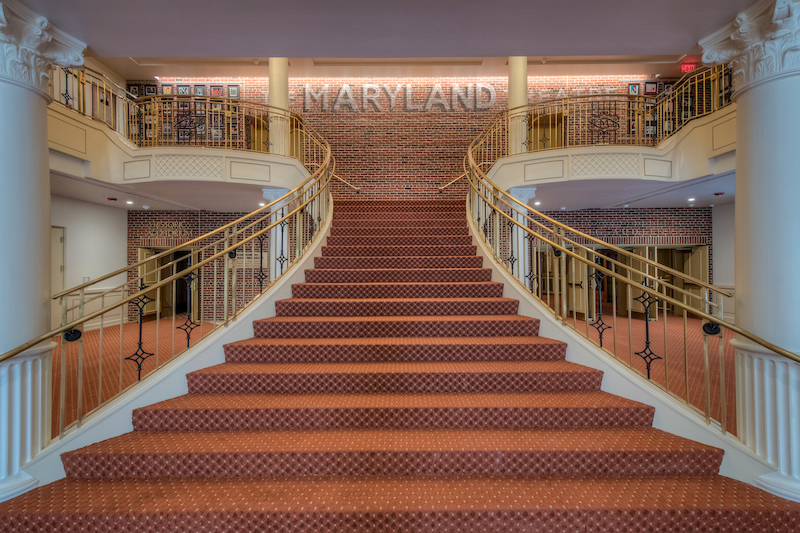
Floor one, the orchestra floor, features the theatre, the grand lobby, and offices. The second floor mezzanine features the theatre balcony, the new mezzanine lobby, a conference room, and Maryland Symphony Orchestra offices. The third floor includes a rehearsal studio, a volunteer lounge, dressing rooms, and a VIP lounge. The fourth floor comprises the Grand Ballroom and a catering kitchen. Restrooms and a gallery are included below grade.
The theatre was able to remain open for the majority of construction. Scaffolding was dressed up with sparkle lights, and plexiglass views to the work being done gave patrons a window into the building’s transformation.
PROJECT INFORMATION: Size 32,000 sf Construction start and finish June 1, 2018 - October 11, 2019 Cost $12,200,000 Delivery method Design/Bid/Build
BUILDING TEAM: Submitting firm Grimm + Parker Architects Owner/Developer The Maryland Theatre Architect Grimm + Parker Architects SE Matonak, Snyder & Associates MEP Alban Engineering Inc. GC Morgan-Keller Construction
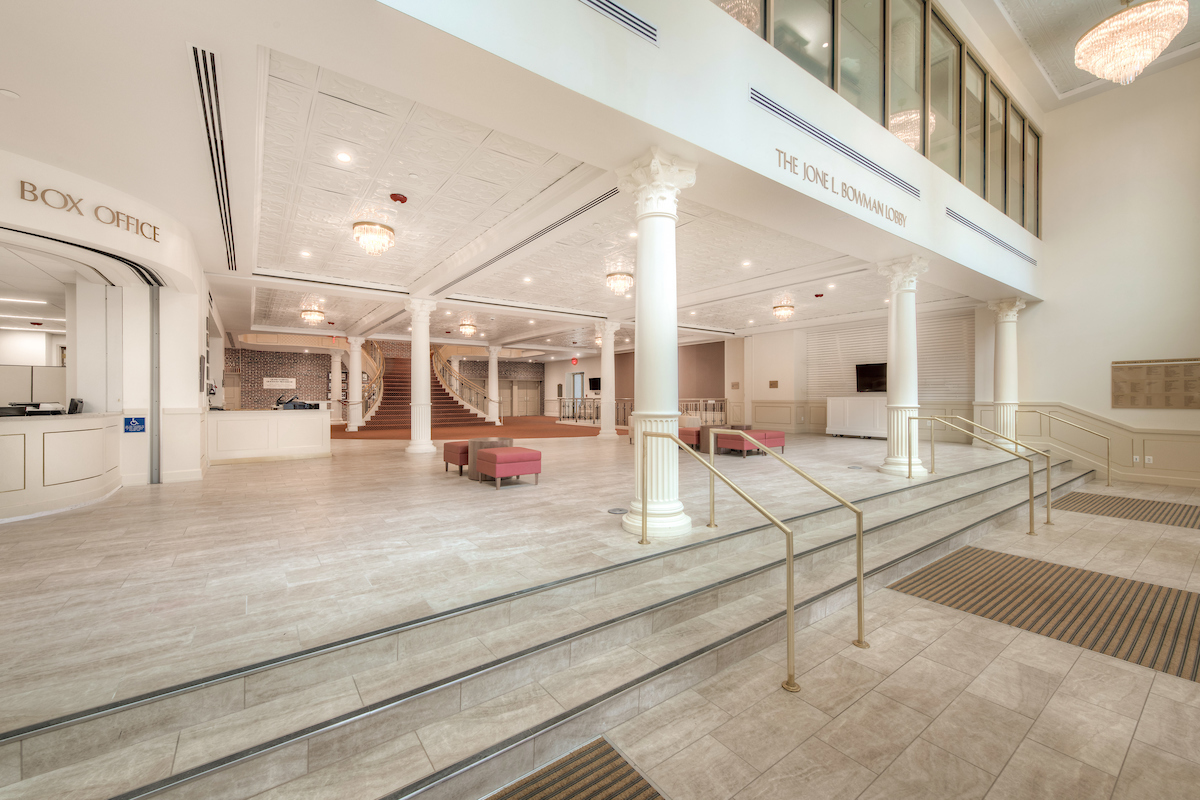
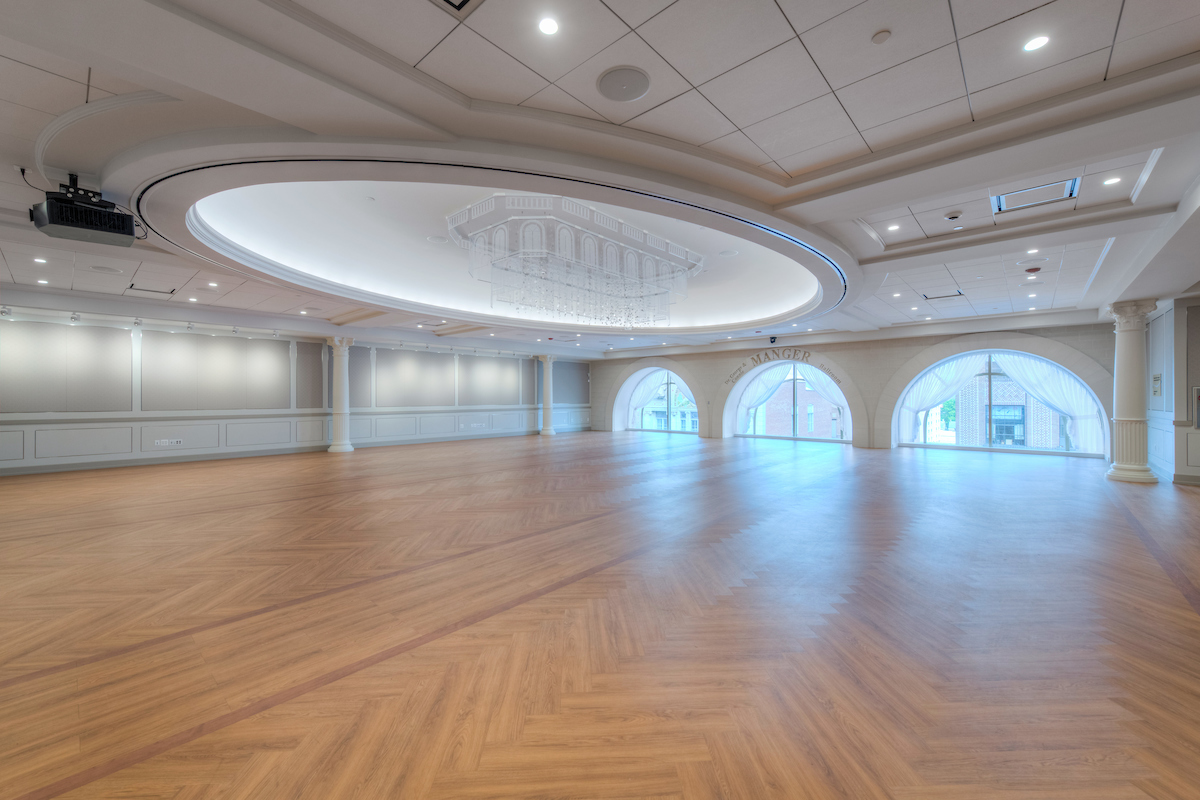
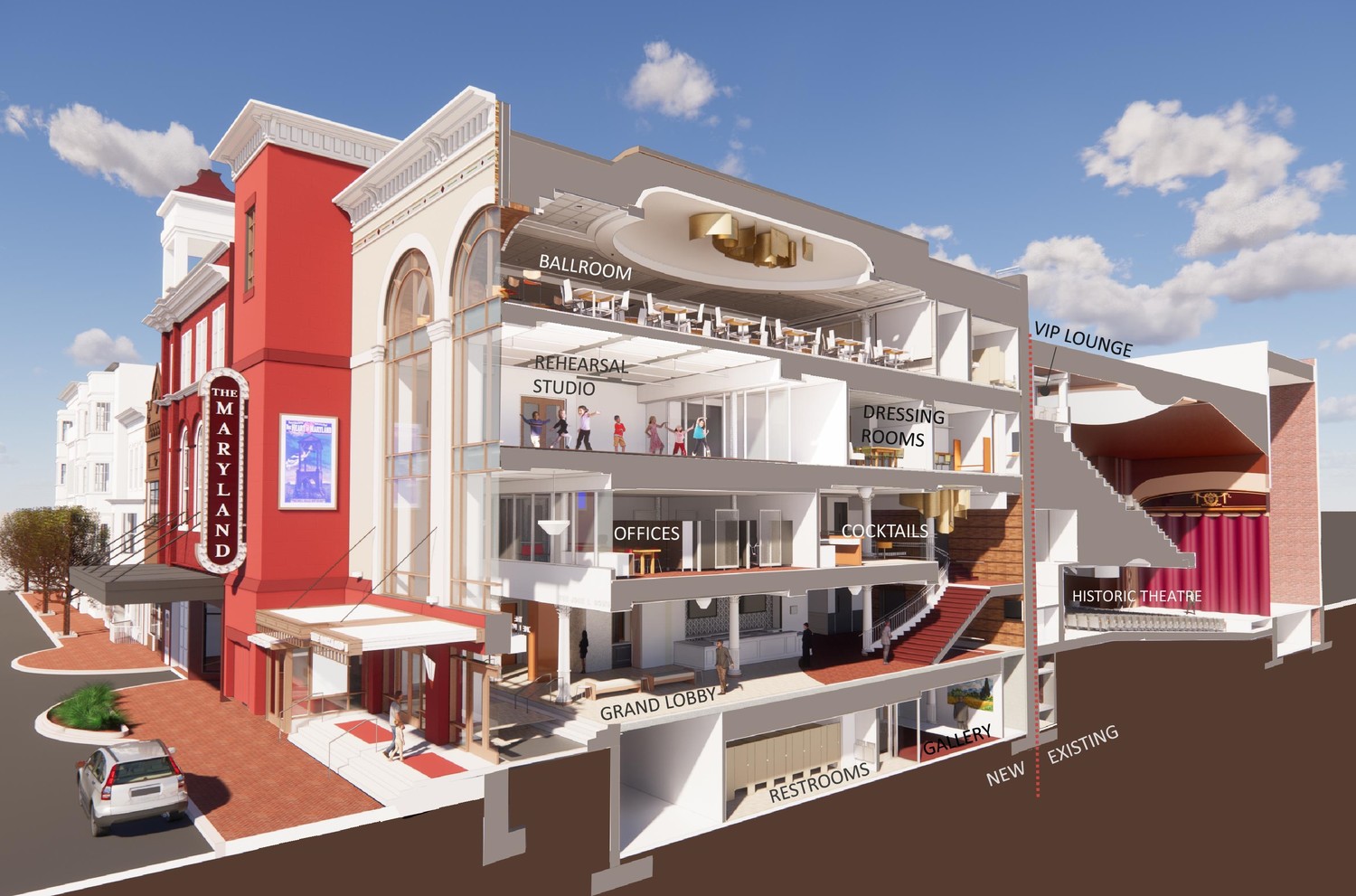
Related Stories
Reconstruction Awards | Nov 16, 2016
Reconstruction Awards: Marilyn I. Walker School of Fine and Performing Arts, Brock University
The five-story brick-and-beam structure is an adaptive reuse of the Canada Hair Cloth Building, where coat linings and parachute silks were once made.
Reconstruction Awards | Nov 16, 2016
Reconstruction Awards: Marwen
Marwen currently offers 100 studio courses to 850 underserved students from 295 schools and 53 zip codes.
Reconstruction Awards | Nov 16, 2016
Reconstruction Awards: The Cigar Factory
The Cigar Factory was originally a cotton mill but became the home of the American Cigar Company in 1912.
Reconstruction Awards | Nov 16, 2016
Reconstruction Awards: St. Patrick's Cathedral
The cathedral, dedicated in 1879, sorely needed work.
Reconstruction Awards | Nov 15, 2016
Reconstruction Awards: Lovejoy Wharf
After demolishing the rotten wood wharf, Suffolk Construction (GC) built a new 30,000-sf landscaped quay, now known as Lovejoy Wharf.
Reconstruction Awards | Nov 15, 2016
Reconstruction Awards: KETV-7 Burlington Station
The 1898 Greek Revival train terminal, which was listed on the National Register of Historic Places in 1974, had been abandoned for nearly four decades.
Reconstruction Awards | Nov 14, 2016
Reconstruction Awards: The Gallery at the Three Arts Club
On the exterior of the building, masonry and terra cotta were revitalized, and ugly fire escapes on the south façade were removed.
Reconstruction Awards | Nov 14, 2016
Big-box store rescaled to serve as a preventive-care clinic
The hospital was attracted to the big box’s footprint: one level with wide spans between structural columns, which would facilitate a floor plan with open, flexible workspaces and modules that could incorporate labs, X-ray, ultrasound, pharmacy, and rehab therapy functions.
Reconstruction Awards | Nov 14, 2016
Fire-charred synagogue rises to renewed glory
The blaze left the 110-year-old synagogue a charred shell, its structural integrity severely compromised.
Reconstruction Awards | Nov 11, 2016
Adaptive reuse juices up an abandoned power plant
The power plant was on the National Register of Historic Places and is a Recorded Texas Historic Landmark.


